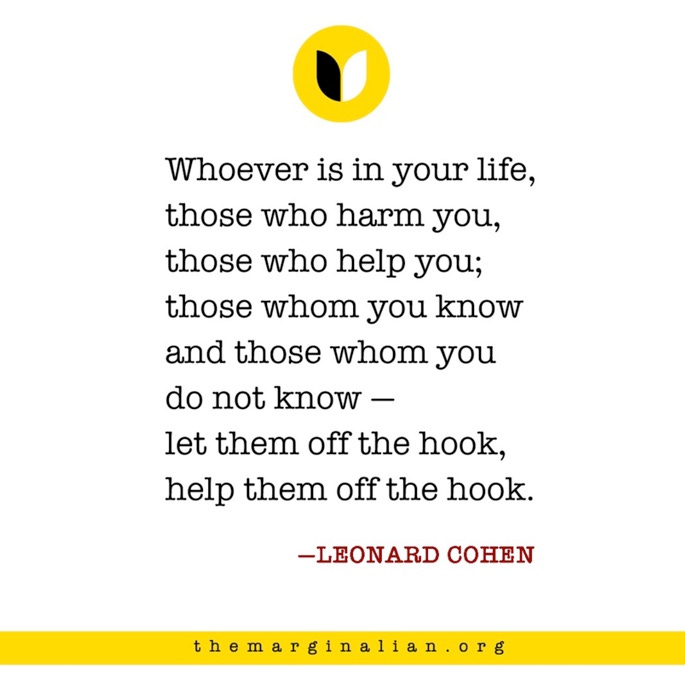Writing with love, part two
I said to a friend the other day: Love has radicalized me.
Love for myself. Love for you, whether I know you or not. What else is there of any real worth? What can we build without it?
—The poet Maggie Smith, on Facebook
I love
because I feel like we’re searching to answer many of the same questions these days.And one of those questions has to do with love and all of the how’s and why’s of it.
Several writers on the Write-minded podcast I co-host with
have said they try to write with love, so I became especially fascinated with what this means when Edwidge Danticat spoke about it in a recent episode (here’s my take, Love and Writing. Writing and Love.).Like Maggie, I’ve realized—no, felt—the radicalizing forces of love—but at the same time I’ve also realized just what a complicated, confusing word love is. How it holds so many definitions—and how we each need to define it for ourselves.
Pause and think: What is your definition of love? How do you live that definition? How do you write with that definition?
Love can be thorny and giving and magical and damning and galvanizing and frustrating and sweet. All in a day. All in a moment.
Carvell Wallace was recently on Write-minded, and his definition of love is that it’s “struggle.” It’s a struggle to love yourself, to love those who love you—and to love those who don’t love you.
But that struggle is defined by devotion and commitment—radicalizing elements that shine a light in the darkness to help us endure, to show up, to forgive, to give grace, to ask for grace, to accept failure, and to try. And to try again. And to try again.
James Baldwin, who described writing as an act of “bearing witness,” also believed in writing with a deep sense of love and empathy.
“The role of the artist is to make the revolution irresistible,” said Baldwin.
No matter what revolution it is. Because love is radicalizing (I’m going to keep repeating this, and italicizing it, and putting it in bold). Because with love, you go beyond yourself.
Love is beyond language
The wonderful (but frustrating) thing about love is how it’s beyond us, like the divine—we reach for it, but we can’t quite grasp it.
In Carvell’s memoir, Another word for love, he tells a story about Charles Mingus, who wrote compositions that included notes that were way too high for his musicians. When they complained, Mingus told them the point wasn’t whether they hit the notes, but that their sounds showed how hard they were trying.
Trying for the impossible, straining … a definition of love.
Carvell said:
“Did you know that love is beyond language, even though we are forever trying to find language for it? It sounds like a contradiction, but it is not. The language is an offering. A symbol. A gesture, not unlike what a mortal would make to a god. My little handfuls of marigolds and honey, incense and aqua de florida cannot reach the heavens any more than my words can reach to the center of our love. The heavens, like our love, are everything and nothing; the heavens, like our love, are everywhere and entirely unseen. Still, it is nice we try.”
This reminds me of Margaret Atwood, who said “All writers feel struck by the limitations of language. All serious writers.”
We try.
It reminds me of the choreographer Martha Graham, who said, “No artist is pleased. There is no satisfaction whatever at any time. There is only a queer, divine dissatisfaction, a blessed unrest that keeps us marching and makes us more alive than the others.”
We try.
We write and live in a type of hopeful failure, reaching, yearning, striving, unable to quite grasp what we aim for, yet steadily working in that frustrating “divine” failure because it holds a strange liberation, according to Carvell—simply because we’re trying.
“I don't know how love is supposed to be liberating when it lies trapped within us, when there is no amount of talking or writing or holding or fighting or kissing or fucking or conscious uncoupling that can ever hold it all. I find myself returning once again to an idea that keeps haunting me: love often feels less like freedom from struggle and more like struggle for freedom, an impossible and intermittently sublime attempt at deliverance that we knowingly submit ourselves to again and again. Maybe that’s the liberation: waking up every day with absolute certainty of what our devotion will be. Maybe the liberation is in waking up every day and knowing we are longing for a thing that we will never be finished seeking.”
I often say writing is my form of prayer. I think it’s my prayer because of my devotion to keep trying—and that trying brings with it an odd peace, an odd joy, because of the nature of the seeking and my commitment to the seeking.
One day’s breakthrough leads to the next day’s damnation—but if I keep believing, if I show up, if I’m devoted, the struggle of my love greets me like a companion as if to say, “Here we are again. This is the only way.” In writing and in life.
In our darkest hours
To write with love is the most intimate of human labors. In our darkest hours, we don’t need fixing or pep talks; we yearn for simple human connection—a quiet presence, a gentle touch.
When we open ourselves to the deep possibilities of intimacy, in writing and life, we become more than ourselves, we fuse with another. Our writing is a way to magnify the light between us. Because the world is darkest when we don’t feel a companion by our side.
Love is radicalizing because of, not in spite of, the struggle. Radicalizing because our love is going to take us beyond ourselves. The love is in the reaching, the constant reaching, and all of the new ways you keep trying. Because whether you’re loving a real person or a character on the page, there are times you’re going to feel ridiculous, humiliated, or misguided. You’re going to feel impatient, misunderstood, and even forgotten.
So we struggle. And we ask ourselves if the struggle is worth it. And the struggle deepens our devotion even as it might spike our doubt. Our struggle tires us out even as it energizes us. Our struggle asks us questions: if we’re doing it right, if we should do it at all, how we should do it.
And none of us really know the answers to those questions. We just have to keep trying, and struggling, to figure it out.
But here’s the thing: you’ll also feel a love that’s surprising and intoxicating and contagious and expansive and thrilling. You’ll feel a love that’s worth whatever damnation it might hold. You’ll forget yourself. You’ll sacrifice yourself. And it will feel like a definition of beauty.
Just the idea of love brings us together. Even if we feel ourselves forever apart.
To go back to Maggie’s question from the start: What can we build without love—I’ll add what can we rebuild with love, because life and love is as much about rebuilding as it is about building.
Love. Build. Love. Rebuild. Love. Repeat. Go. Go. Go.
Please contribute your spare change to help me publish this newsletter.
Join a flash fiction gym!
I’m very excited to join flash forces with flash master and good friend Meg Pokrass to host the first in our upcoming generative flash sessions: Flash Gym!
What is a flash gym? We’ll feature six quirky on-the-spot prompts and also provide a brief craft discussion for inspiration. You’ll leave with six stories!
Our inaugural Flash Gym happens on December 8 from 11 a.m. to 1 Pacific—via Zoom. There will be an optional 30-minute add-on at the end for participants who wish to read their new work aloud.
The Zoom link will be sent the day before the class.
Because a quote
“If nothing saves us from death, at least love should save us from life.”
—Pablo Neruda







Grant, as corny as it may sound, a song by Burt Bacharach and Hal David began swirling in my head by the end of your post:
"What the world needs now
Is love, sweet love
It's the only thing that there's just too little of
What the world needs now
Is love, sweet love
No, not just for some, but for everyone"
So...I will join you "because love is radicalizing"
Love. Build. Love. Rebuild. Love. Repeat. Go. Go. Go.
I used to think love was a feeling. Learning love was action, what we do, not what we say, changed everything. Love is a choice I make everyday. I love writing because I get to witness magic as words and wisdom, beyond what I think I know, appear on the page or screen.
I wish I’d understood the power of love when I was young.